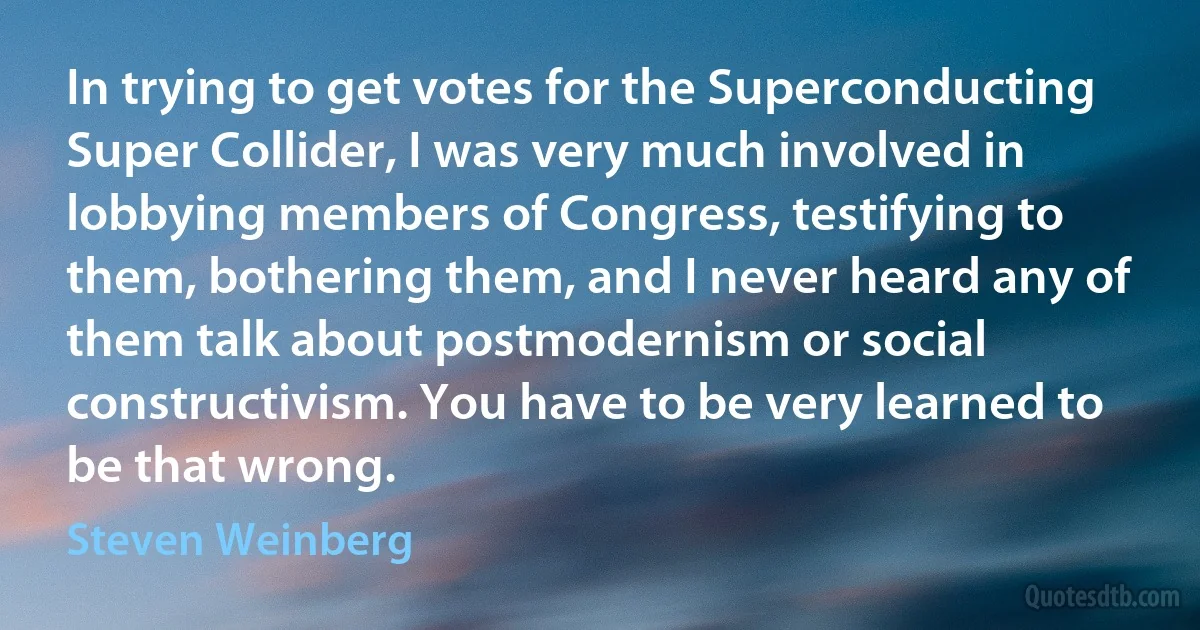Constructivism Quotes
Deleuze is a key figure in postmodern French philosophy. Considering himself an empiricist and a vitalist, his body of work, which rests upon concepts such as multiplicity, constructivism, post-structuralism, difference and desire, stands at a substantial remove from the main traditions of 20th century Continental thought. His thought locates him as an influential figure in present-day considerations of society, creativity and subjectivity. Notably, within his metaphysics he favored a Spinozian concept of a plane of immanence with everything a mode of one substance, and thus on the same level of existence.

Gilles Deleuze
The second-order cybernetics worked out by Heinz von Foerster is rightly held to be a constructivist theory, if no an a manifesto for operational constructivism. The reverse doesn't apply, however. Constructivist epistemologies do not necessarily have the rigor of a cybernetics of cybernetics. One can obeserve congnitions as constructions of an observer, without linking with this the theory that the observing observer observes himself or herself as an observer.

Niklas Luhmann
[learning European modern art by seeing it in the art-magazine 'w:Cahiers d'art'].. ..my heritage was all those things; [De Stijl, Constructivism, Cubism, Surrealism ] simultaneously, so I am all those things. I hope with a very strong intellectual regard for Cubism, and an admiration for it, because it was great at a particular time. It was both painting and sculpture. It was a great point of liberation in both painting and sculpture, and especially sculpture. [David Smith was one of the few sculptors in the art scene of American Abstract Expressionism ].

David Smith
The great theme of his remarkable explorations in intellectual history is the danger of all constructivism, the belief that we can deliberately design social arrangements which will be better than those we unwittingly hit upon. Paradoxically, however, the drive of Hayek's own work is itself characteristically that of a rationalist construction. Admiring David Hume and detesting Auguste Comte, his genius was to marry the sceptical insights of the one to more than a touch of the compulsive rigour of the other.

Friedrich Hayek
Hayek [...] seemingly would severely limit mankind's ability to design the future through the process of working things out. But Hayek rejects neither reason nor deliberative critique nor constructivism. The exercise of reason in deliberative critique in the service of reconstruction of economy, polity, and society is not only called for but is part and parcel of the Mengerian argument. Constructivism is inherent in the body of social theory developed by Hayek. Constructivism is practiced by Hayek. It is the fundamental logic of his life's work. In a sense, his own practice constitutes the negation of his own argument.

Friedrich Hayek
The self-inflicted isolation of the contemporary artist and the mistrust levelled against the architect are both important contributing factors in the current situation of architectural art. The painter is anxious to keep intact the historical image of artist as loner, the intense sensitive, the genius and "maestro”; while the architect, feeling the watchful eye of his client constantly over his shoulder, approaches any extra-to-budget expense, such as art, with considerable trepidation, guarding jealously any intrusion into his building by potential glory-thieves. – Clarke in the essay 'Towards a New Constructivism', from his 1979 book Architectural Stained Glass.

Brian Clarke

